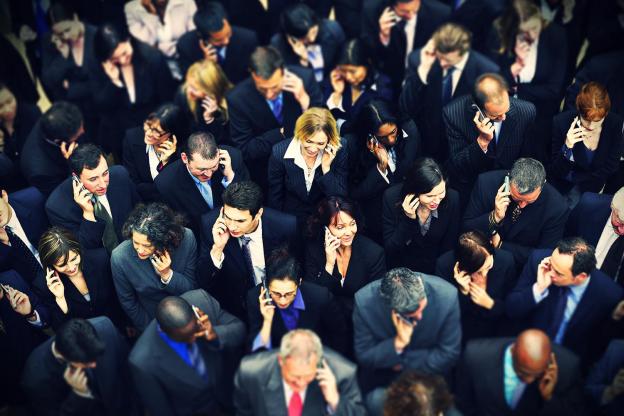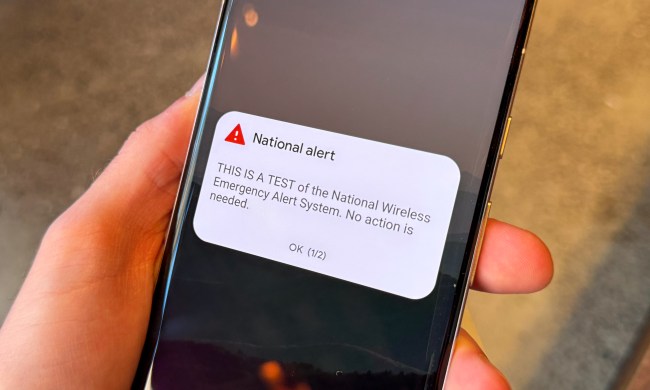
The House of Representatives on Wednesday narrowly defeated an amendment, sponsored by Michigan Republican Rep. Justin Amash and Democrat Rep. John Conyers, which would have prevented the National Security Agency from collecting phone metadata on virtually everyone in the country.
Opponents of the so-called Amash amendment, which would have required the NSA to limit its telephone data collection only to individuals “under investigation,” argue that the NSA telephone data surveillance program is vital to the protection of U.S. national security. Supporters, conversely, believe that it would have placed reasonable limits on the NSA’s spying powers, and restored Fourth Amendment protections against unreasonable searches and seizures. Why, after all, can’t the NSA simply limit its data collection to only those under investigation?
The simple answer is that an NSA investigation is far more complex and expansive than what the average detective novel reader might think of as an investigation. This is due to the scope of the NSA’s national security mission – stop all terrorist threats – and the amount of data involved in carrying out this mission.
Why, after all, can’t the NSA simply limit its data collection to only those under investigation?
Furthermore, if the NSA does not collect the data, it will be lost forever. Phone companies do not store this metadata indefinitely, as doing so is prohibitively expensive. According to Sen. Saxby Chambliss (R-GA), however, the government is exploring ways for phone companies to store their data longer, rather than have the NSA collect the data.
As for limiting the collection to only those “under investigation,” well, even that isn’t as simple as it sounds. More people are likely “under investigation” than you might think. In fact, according to agency officials, the NSA believes that the majority of people may be worth investigating. NSA Deputy Director Chris Inglis revealed to Congress earlier this month that agency analysts will look at the metadata and Internet records of people “two or three hops” from a suspected terrorist – up to three degrees of separation from a suspect.
In other words, if you are suspected of plotting a terrorist attack, NSA analysts may look into the phone and Internet communications of everyone who communicates with you. That’s one “hop.” In the second hop, the NSA looks at everyone with whom those people communicate. According to the Washington Post, analysts typically stop at this point. Inglis’ testimony reveals that they may go a step further; everyone people in hop number two communicate with may also get checked out by the NSA, in at least some scenarios – hop number three. Given that, according to University of Milan and Facebook researchers, everyone in the entire world is only separated by 4.74 degrees of separation, more than half of all people on Earth fall into the NSA’s purview, at least theoretically.

That said, NSA officials claim the law differentiates between the NSA collecting information, which is legal under Section 215 of the Patriot Act, and searching that information, which may still require the NSA to obtain a court order before doing so – though statements by Senate Intelligence Committee Chairwoman Sen. Diane Feinstein (D-CA) seem to imply that no court order is legally necessary for search queries. (This is a matter of contention.) Regardless, the NSA explains that it only searches telephone metadata “when there is reasonable suspicion, based on specific and articulated facts,” that the records are associated with specific terrorist organizations. The NSA claims “less than 300 identifiers were queried” in 2012.
Perhaps the most controversial aspect of the NSA’s telephone surveillance program is that it collects the metadata because it can. Thanks to something known as the “third party doctrine,” data that you share with third parties – be it Verizon or Facebook – is not protected by the Fourth Amendment, meaning the NSA does not have to get a warrant to collect this metadata since the phone company has easy access to it. Without disrupting third party doctrine, the Amash amendment would have put greater Fourth Amendment restraints on NSA telephone data collection.
Finally, the NSA collects this data because it thinks it is necessary. As the NSA’s fact sheet explains, the September 11 attacks revealed that the NSA was missing crucial intelligence that may have been used to stop the disaster. Among that intelligence: Telephone metadata.
Top image courtesy of bikeriderlondon/Shutterstock


